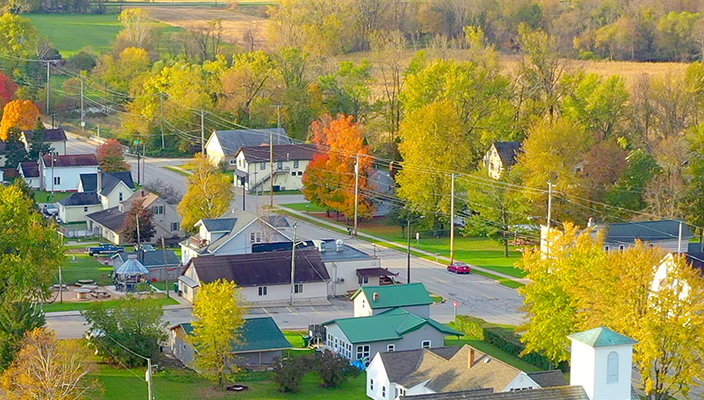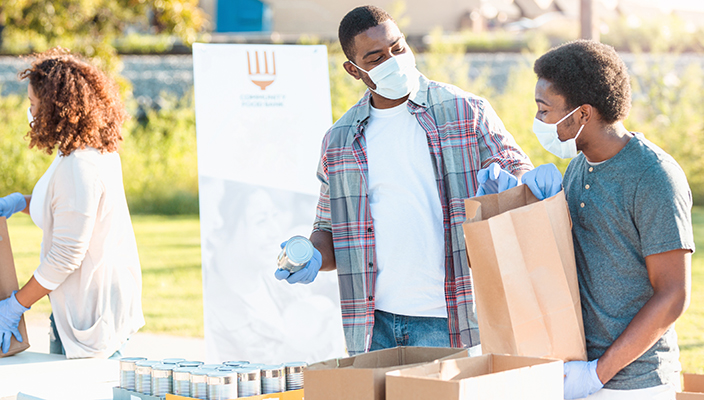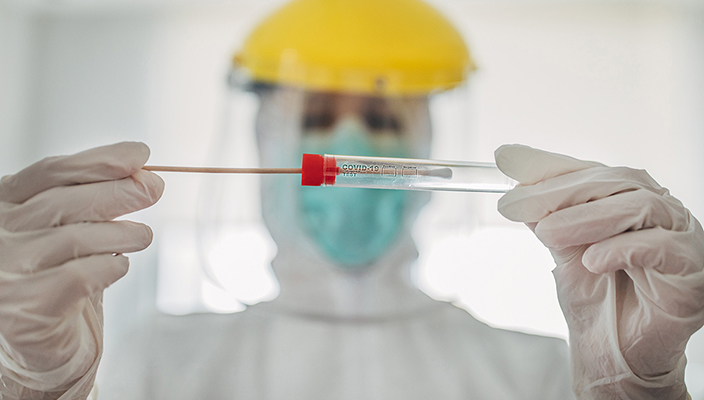All kinds of things can affect your health—including where you live. The All of Us Research Program wants to gather information that will help make discoveries to improve health for everyone. That’s why we make sure to include people from different backgrounds. That means different ages, different ancestries, and different genders. And it means people who live in different places.
People who live in rural areas may have different health issues from people who live in cities or suburbs. They are more likely to have certain health problems, such as high blood pressure. They may have a harder time getting health care—for one thing, they may have to travel a long distance to reach a doctor’s office or hospital. They are also less likely to have health insurance. According to the National Rural Health Association (NHRA), more than 57 million rural residents have limited access to high-quality health care.
“Some health problems are specific to rural communities—like farm accidents or farmer’s lung,” says Scott Hebbring, Ph.D. But rural residents have a lower risk of some other health problems. For example, research has found that kids who grow up on farms are less likely to have asthma and hay fever. They are also less likely to have infections in their lungs and airways. Learning more about this could help researchers find ways to prevent these health problems.
Dr. Hebbring is a research scientist at Marshfield Clinic Research Institute in Marshfield, Wisconsin, which serves rural communities. He also co-leads the All of Us team in Wisconsin and at Marshfield Clinic. “To understand a disease, you want to understand what causes or influences it,” he says. “That’s the whole purpose of All of Us—to understand how the environment, our lifestyle, our genetics, our preferences, and our cultures can influence our health and risk for diseases.”
Including rural residents in research is essential for better understanding their health. But people in rural areas have sometimes been left out of research.
All of Us is trying to change that. The first step is getting the word out to rural residents. All of Us and our partners use a variety of methods to let people know about the program. We’re partnering with NRHA and sites like the Marshfield Clinic. And we’re listening to rural residents to make sure we understand what’s important to them.
One concern is that people in rural areas are less likely to have high-speed Internet access. That can make it harder for them to do some All of Us activities from home. But local All of Us sites are keeping track of people who might need some help to participate. When it’s safe to meet in person, staff will invite them to come to the clinic to complete the sign-up process or take surveys.
All of Us is proud to have participants from all over the United States. So far, we have more than 25,000 participants in rural areas. We are grateful for their participation. The information that they provide will help us better understand what affects their health. And we hope that will help researchers learn more about how to improve health.
Learn more about rural health.







 The All of Us community mourns the passing of Shawn D. Smith Jr. Shawn was a participant ambassador for All of Us. He joined the program to share his passion for research with his friends, family, and Pittsburgh community. Shawn was also a mental health advocate. He worked to help others find the positive in their life challenges. A singer and songwriter, Shawn used song to share his journey with a spinal cord injury. He will be missed and remembered by the University of Pittsburgh and national All of Us teams.
The All of Us community mourns the passing of Shawn D. Smith Jr. Shawn was a participant ambassador for All of Us. He joined the program to share his passion for research with his friends, family, and Pittsburgh community. Shawn was also a mental health advocate. He worked to help others find the positive in their life challenges. A singer and songwriter, Shawn used song to share his journey with a spinal cord injury. He will be missed and remembered by the University of Pittsburgh and national All of Us teams.